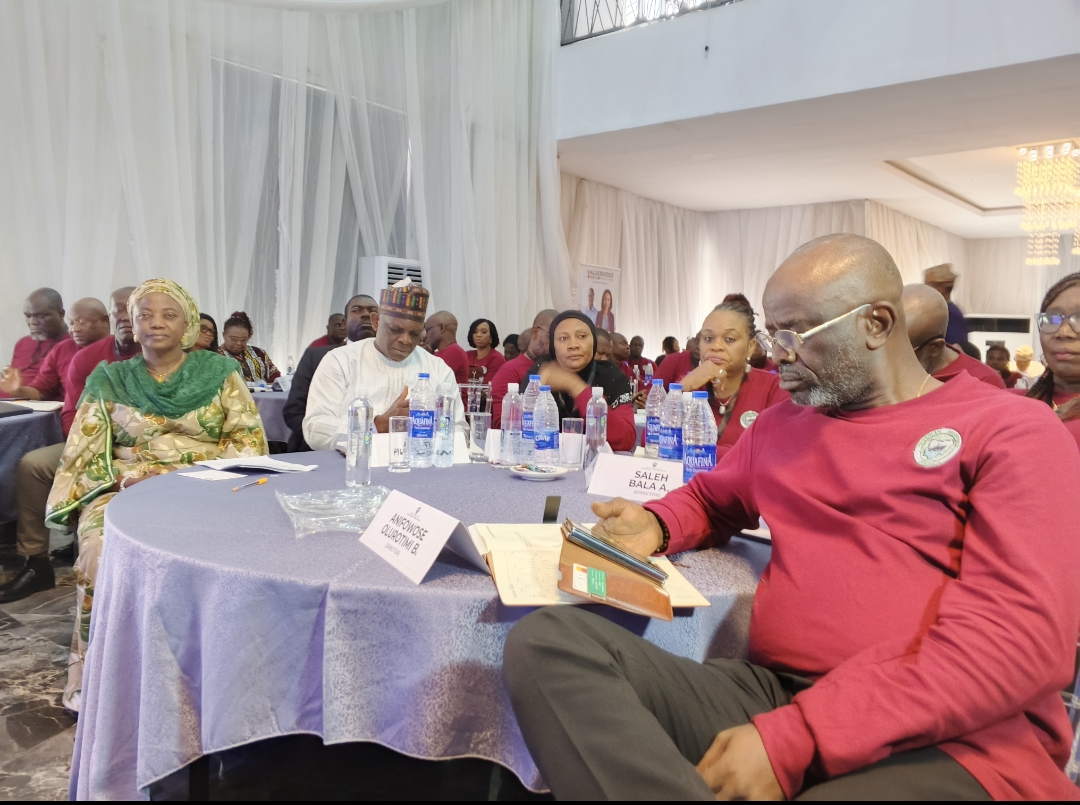
The Executive Secretary of the Nigerian Shippers’ Council (NSC), Mr. Pius Akutah, has outlined the agency’s funding strategies for 2025, emphasizing the implementation of the 1% freight fee as a crucial revenue source.
Speaking during the Council’s Annual Management Retreat in Ibadan on Wednesday, Akutah confirmed that the bill to implement the freight fee has been passed by both chambers of the National Assembly and is currently undergoing procedural cleaning before being presented to President Bola Ahmed Tinubu for assent.
Expressing optimism about the bill’s approval, Akutah revealed plans to defend the Council’s budget at the National Assembly next month. He described the bill’s implementation as a vital component of the Council’s financial framework, which aims to address the agency’s long-standing funding inadequacies.
Akutah explained that the 1% freight fee, provided for under the Nigerian Shippers’ Council Act, CAP N133, Laws of the Federation, 2004, has remained dormant since the Council’s establishment in 1978. He emphasized that activating this revenue stream is essential to ensuring the Council’s financial sustainability and operational efficiency. According to him, over the years, the Council has relied primarily on the 12-7% Port Development Levy, which he noted is insufficient to meet its operational demands.
Akutah reassured stakeholders that the freight fee would not result in additional costs to the sector, as it is a deduction from freight charges paid to shipping companies. He highlighted the economic and operational benefits of implementing the fee, stating that its advantages far outweigh any perceived costs.
In addition to the freight fee, Akutah outlined other revenue sources for the Council’s 2025 budget, including the International Cargo Tracking Note (ICTN). He noted that the ICTN has received widespread support from stakeholders for its potential to enhance cargo security and generate significant revenue. He acknowledged the efforts of the Honorable Minister of Marine and Blue Economy, H.E. Adegboyega Oyetola, in addressing delays in the implementation of the ICTN, ensuring that all contractual and operational issues are resolved to facilitate its seamless rollout.
Akutah concluded that the combined revenues from the freight fee, ICTN, and the Port Development Levy would significantly enhance the Council’s capacity to regulate the maritime sector effectively. These efforts, he said, align with the federal government’s commitment to trade facilitation and economic growth.
“For years, we have operated with inadequate funding, relying solely on the 12-7% Port Development Levy, which is insufficient to run the Council’s activities effectively. The bill has been passed by both chambers of the National Assembly and is in the final stages of preparation for presidential assent.
“With the budget’s approval and the eventual implementation of the freight fee and ICTN, the Council will be better positioned to regulate the maritime industry effectively, promote trade facilitation, and contribute significantly to national economic growth ” Akutah concluded.
Speaking during his goodwill message at the event, Minister of Marine and Blue Economy, Mr Adegboyega Oyetola commended the NSC for its pivotal role in driving innovation and excellence within Nigeria’s maritime sector.
Oyetola who was represented by the Director Planning Research and Statistics of the Ministry, Hajia Kalthum Ibahim emphasised the strategic importance of the maritime sector as a cornerstone of Nigeria’s economic growth, serving as a vital link to global trade networks. He urged stakeholders to focus on sustainable exploitation of marine resources while addressing challenges that hinder the sector’s growth.
The Minister lauded the Council’s notable initiatives, including its anti-corruption campaign at Lagos ports, research on transportation and logistics issues in international trade, and efforts to implement the International Cargo Tracking Note (ICTN). He described these efforts as key drivers of progress, particularly in facilitating trade under the African Continental Free Trade Area (AfCFTA).
Despite the challenges facing the maritime industry, Oyetola highlighted the NSC’s strides in port reforms, infrastructure enhancement, connectivity optimisation, and capacity building. He urged the Council to remain steadfast in adopting global best practices, such as the Port Community System (PCS), to streamline operations and bolster maritime security.
The Minister also called for collaboration and innovation in shaping policies that promote inclusivity and sustainability within the sector. He pledged the Ministry’s unwavering support, stating that efforts were underway to conclude a comprehensive Marine and Blue Economy Policy tailored to contemporary needs.
“As we convene here today, let us reaffirm our commitment to harnessing the vast potential of our marine resources sustainably, aligning with international standards and addressing the unique challenges facing our country. Collectively, we can drive positive change, enhance efficiency, and build a vibrant and resilient maritime sector for future generations,” he noted.
Also speaking, Mr. Rotimi Anifowoshe, Director of Research and Strategic Planning at the Nigerian Shippers’ Council, emphasized the importance of unity and collaboration among the Council’s leadership team during the ongoing management retreat. “Let us strengthen the bond of leadership,” he urged, encouraging participants to approach the retreat with open minds, a collaborative spirit, and a shared vision of excellence.
Mr. Anifowoshe expressed confidence in the Council’s ability to transform challenges into opportunities through collective effort and strategic planning. “With my team, and all of us together, we can achieve remarkable progress,” he stated.















